"Grief Tech" Wants to Eradicate the Pain of Loss
As though that's possible, or even desirable.
There is a forthcoming book on my TBR pile that I am simultaneously greatly anticipating and also a little fearful of.
The book is Memorial Days by Geraldine Brooks, and it is the chronicle of her journey of mourning her husband, the writer Tony Horwitz, following his sudden death in 2019.
I am anticipating the book because Geraldine Brooks is an excellent writer and grief, for whatever reason, has long been one of my fascinations as both a reader and a writer. I’ve written previously about how Bridge to Terabithia was my first vicarious - but still profound - experience with grief. The first story I ever published and was paid for was title “This Is Not a Story About Grief.”
It was about grief.
I don’t know that there is a more powerful human emotion to be had than the experience of grief - and to be sure, grief is an experience - an that shifts in form and intensity over time. This is not to say we should seek out or court grief because it can be truly terrible. You wonder how people can survive something like the relentless death and destruction of Gaza. Terror on top of grief.
As an emotional, grief is so powerful, sometimes even imagining the grief of others can feel overwhelming. On social media the other day, I saw a headline “Johnny Gaudreau’s Wife Meredith Shares Heartbreaking Video of Matthew’s Speech at Her Wedding.” The story is referring to the deaths of NHL star Johnny Gaudreau and his brother Matthew the day before their sister’s wedding when they were struck by a drunk driver while bicycling. Can you even imagine what the loved ones left behind are going through? It’s beyond rational understanding, and yet it obviously exists. Why wouldn’t you do everything possible to make this incredible pain of this loss go away.
Enter Justin Harrison and the “grief tech” industry. (Thanks to Josh Brake for bringing this story to my attention.) Harrison and others working in this space are “on a mission to fundamentally change how we experience loss, using artificial intelligence to recreate the essence of dead loved ones from their digital footprint.”
My horror at the idea was reflexive and severe. Subsequently watching the video linked above made me more sad than angry toward Justin Harrison. His mother passed away. He misses her, and he thinks he can recreate some version of her using generative AI technology and the scraps of his mother’s life left behind (like her voice) to create a digital simulacrum.
While doing all this writing about the implications of generative AI over the last almost two years, I very rarely feel anything like fear. I am entirely unconvinced that this technology will - acting autonomously - produce anything much of interest or meaning. I do not think my humanity will be supplanted by what is, at heart, a tool of automation.
However, I am worried about the apparent desire of some, perhaps many humans to avoid the experiences of being human in an effort to achieve a kind of perfection of existence. I’m thinking about the bio-hackers like Bryan Johnson who thinks he can cheat death by turning his life into an algorithm. Johnson believes he can make death “optional.” I’m thinking about the people who believe a generative AI bot can substitute for your therapist, your romantic partner, or your teacher.
Believing in these things is to willingly give oneself over to a delusion. I worry because humans have long demonstrated a penchant for delusion and this technology offers up these delusions “at scale,” as a tech person might put it. Life can be difficult and figures like Sam Altman are promising a way out of life’s difficulties, as he does in a recent missive about the impending future incredible awesomeness of AI.
I honestly don’t know how anyone could believe this. It is pure hucksterism, an attempt to separate ourselves from our senses.
Grief is fundamental to being human. Grief is painful, but it is not only painful, particularly over time. Whenever something relatively big happens to me - like say the advance copies of my next book arriving - one of my first thoughts is of my father, who passed away in 2005, because I know he would’ve gotten a kick out of it, that he would’ve wanted to talk about it, and that - even though I didn’t quite know it while he was living - he was my biggest fan. There is an echo of the more acute pain of that loss in these moments, but it is also good to remember this about my father.
This is the background picture on my home’s phone screen.
That’s Oscar. He hasn’t been with us since spring of 2021. After a challenging start to life he was our companion of 15 years. I miss him still, but when I see this picture now my primary emotion is gratitude. He was the best boy he could be for a long as he was capable of it.
What more can we wish for from life?
Barbra Streisand cloned her dogs, but as dear as Oscar was, I don’t need his identical genetic twin to remember him. We cohabitate with this little character now:
I expect to feel my feelings when I read Memorial Days. One of those feelings will, I’m sure, be empathy for Geraldine Brooks’s loss. Others of those feelings will be sadness as I reflect on my own losses, which are, objectively speaking, fewer than one would expect having reached age 54. I don’t wish grief on anyone, but I cannot imagine a life where we have “eliminated” grief.
Grief is not what makes us human, but it is for sure part of our capacities as humans.
If we eradicate grief, we may be on our way to eradicating love.
This seems like a good opportunity to share and reflect on some of my own most meaningful reading experiences of books about grief.
A Grief Observed by C.S. Lewis
Essentially a compilation of Lewis’s journals written after the passing of his wife Joy Davidman after only three years of a late-in-life marriage. There is perhaps no better example of the connection between love and grief as Lewis wrestles with the anger at the unfairness of having finally secured a profound connection to another, only to have it taken from him. The depth of Lewis’s Christian faith makes the expression of his despair even more wrenching and meaningful.
The Year of Magical Thinking by Joan Didion
A widely-acknowledged “classic” of the grief memoir, Didion writes about the extreme disorientation of the period after the sudden passing of her husband John Gregory Dunne, and severe illness of their daughter, Quintana Roo Dunne (who would ultimately also pass away). Like A Grief Observed, this is a book about the immediate aftermath, the process of navigating sudden and destabilizing grief.
A Heartbreaking Work of Staggering Genius by Dave Eggers
In contrast to A Grief Observed and The Year of Magical Thinking, this book by my friend Dave Eggers is told more retrospectively, appearing eight years after the passing of his parents within months of each other when Dave was a senior in college and assuming guardianship over his younger brother Toph. The advantage of time allows for some self-awareness and frequently funny meta-commentary - as demonstrated in the title - but ultimately this is a beautiful book about finding connection with others and the world in the wake of terrible loss.
A Prayer for Owen Meany by John Irving
I see this, essentially, as a novel-length elegy for a friend, a story narrated by John Wheelwright about Owen Meany. As is his way in seemingly all of his books, Irving wrestles with his themes of faith, fate, and our duties to others, but by making his narrator a secondary character, all of these things are layered over by Wheelwright’s attempt to make sense of his loss.
I could probably go on and on, but I won’t. Instead, I’ll ask all of you about your most profound reading experiences when it comes to books about grief.
Links
At the Chicago Tribune this week I discuss my appreciation for
’s new novel, Small Rain. For an interesting and contrary opinion on the book, I recommend ’s newsletter post, “Garth Greenwell’s book is unreadable.”At Inside Higher Ed, I wrote about the ongoing lunacy that’s happening in the Stanford Creative Writing Program where a small handful of tenured faculty have decided to terminate the jobs of 23 longstanding non-tenure track lecturers.
At my
newsletter, I have a fantastic guest post from Brett Vogelsinger on what he’s learned from students about writing in a world where generative AI exists.LitHub says these are the 16 best book covers of September.
Verso Books, one of the great radical independent publishers is doing a Kickstarter to try to make up for a staggering loss of revenue from a distributor going bankrupt.
The New York Times tells us what books to look out for in October.
A little literature meets AI humor this week from my friends
, and written by Jonathan Zeller, “Book Review: The Great Gatsby by the Xerox 914 Photocopier.”Recommendations
1. Bad Cree by Jessica Johns
2. Pond Clair by Louise Bennett
3. James by Percival Everett
4. The Underground Railroad by Colson Whitehead
5. Nights of Plague by Orhan Pamuk
Janette T. - New Westminster, British Columbia
I feel like I might’ve recommended this to someone else recently, but I can’t find it, and anyway, it’s a book anyone should read, but especially Janette, based on this list. The Known World by Edward P. Jones.1
I will never say to anyone that I hope you experience grief, but I do hope all of us have the chance to experience the full range of our own humanities and not allow our lives to be mitigated by AI algorithms.
I guess I’ll leave it at that.
Take care,
John
The Biblioracle
All books (with the occasional exception) linked throughout the newsletter go to The Biblioracle Recommends bookstore at Bookshop.org. Affiliate proceeds, plus a personal matching donation of my own, go to Chicago’s Open Books and an additional reading/writing/literacy nonprofit to be determined. Affiliate income for this year is $92.10.



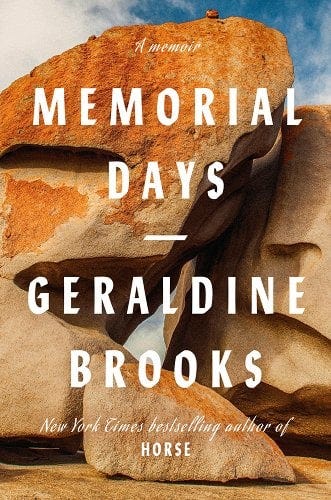
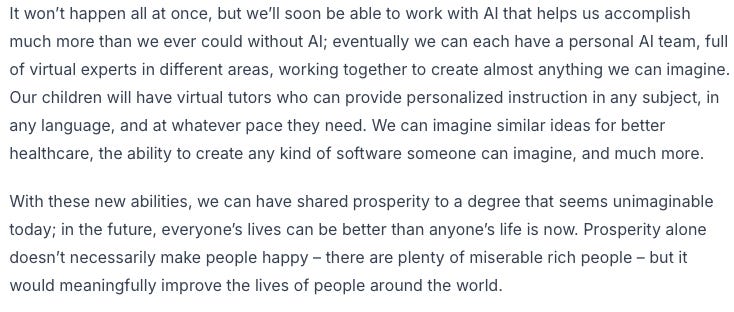


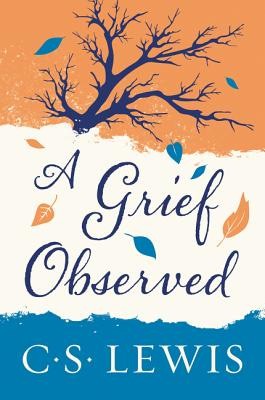
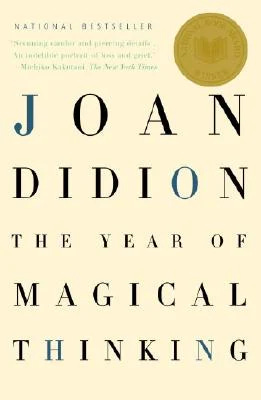
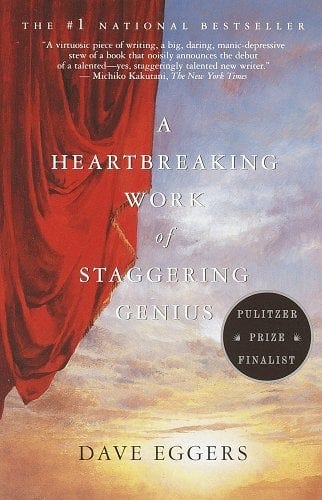
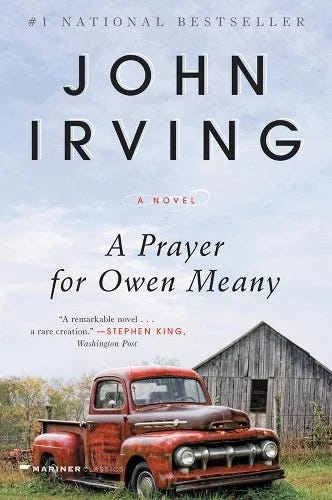

I heard a podcast episode featuring Justin Harrison (A Hidden Brain episode I think) and I was also left feeling very sad for him, he lost his marriage and friends in this ongoing quest, and despite his insistence struck me as someone who is dealing with a deep grief he had been unable to face.
I think about those books I read as a child introducing us to loss like 'Where the Red Fern Grows' and 'Charlotte's Web'. I've had people question exposing children to stories about death or to the realities of losing a pet, but my own daughter had lost both pets and her beloved great grandmother and I think hard things and grief can come at any age and that knowing that we can go on is possible at any age.
Grief is with me everyday. It grows and shrinks. It makes me sad at times, but grateful at others. It is odd. But I wouldn’t change it. Grief is love.
H is for Hawk is another great grief book that weirdly helped me when I was in one of the sad patches.